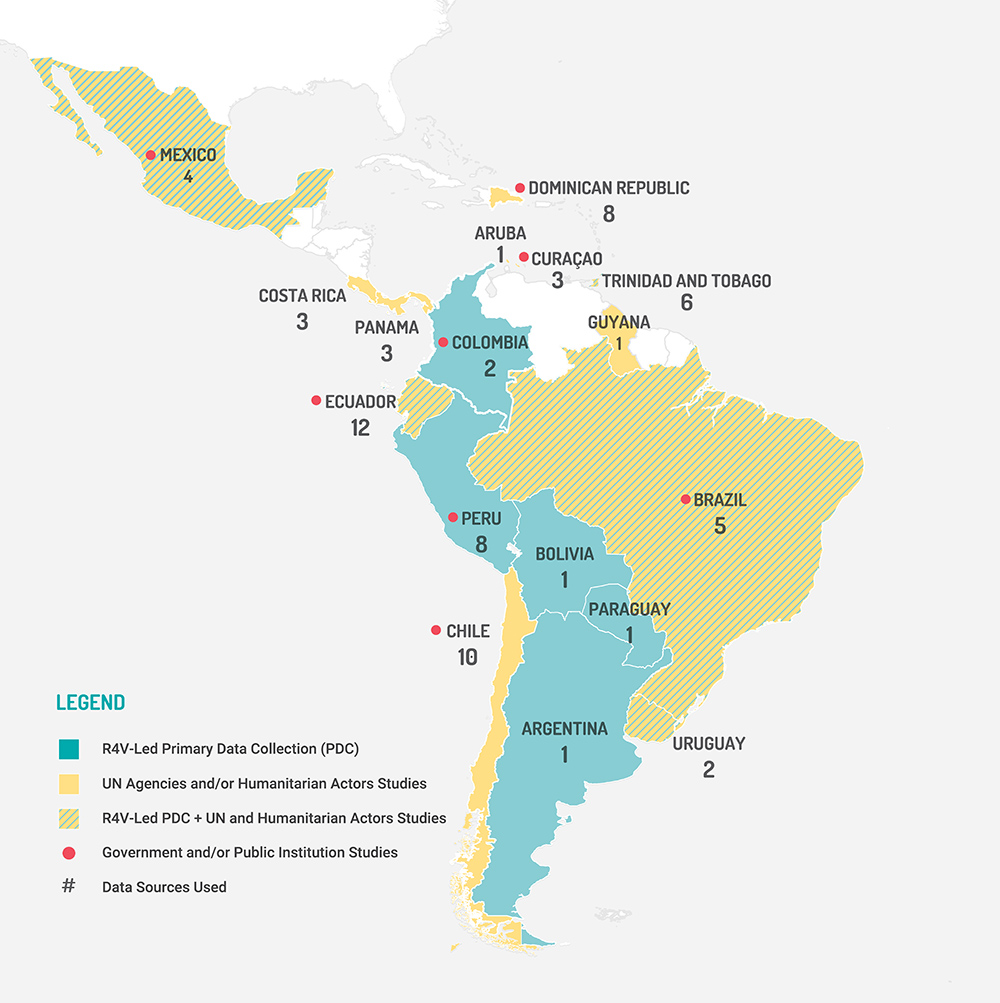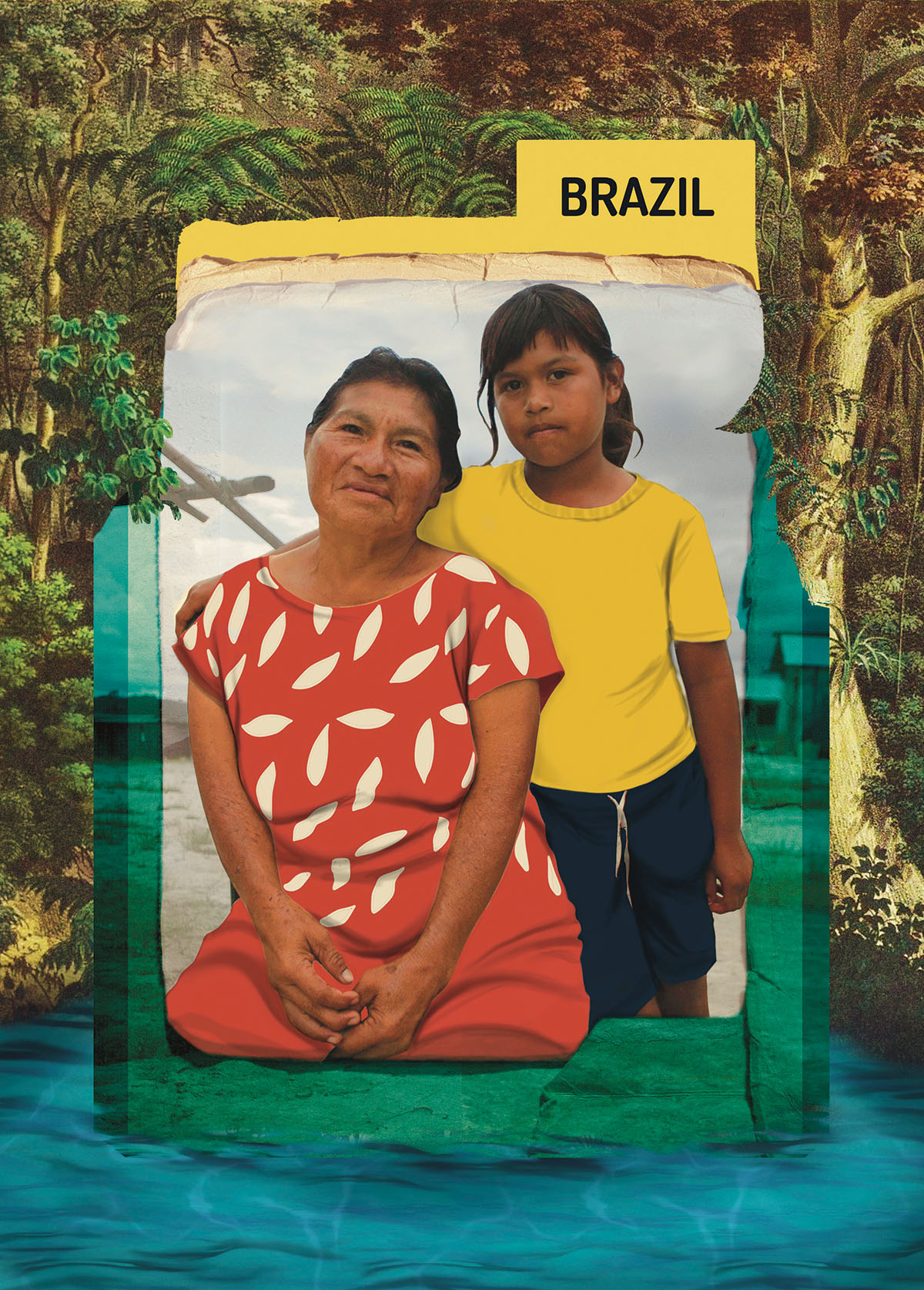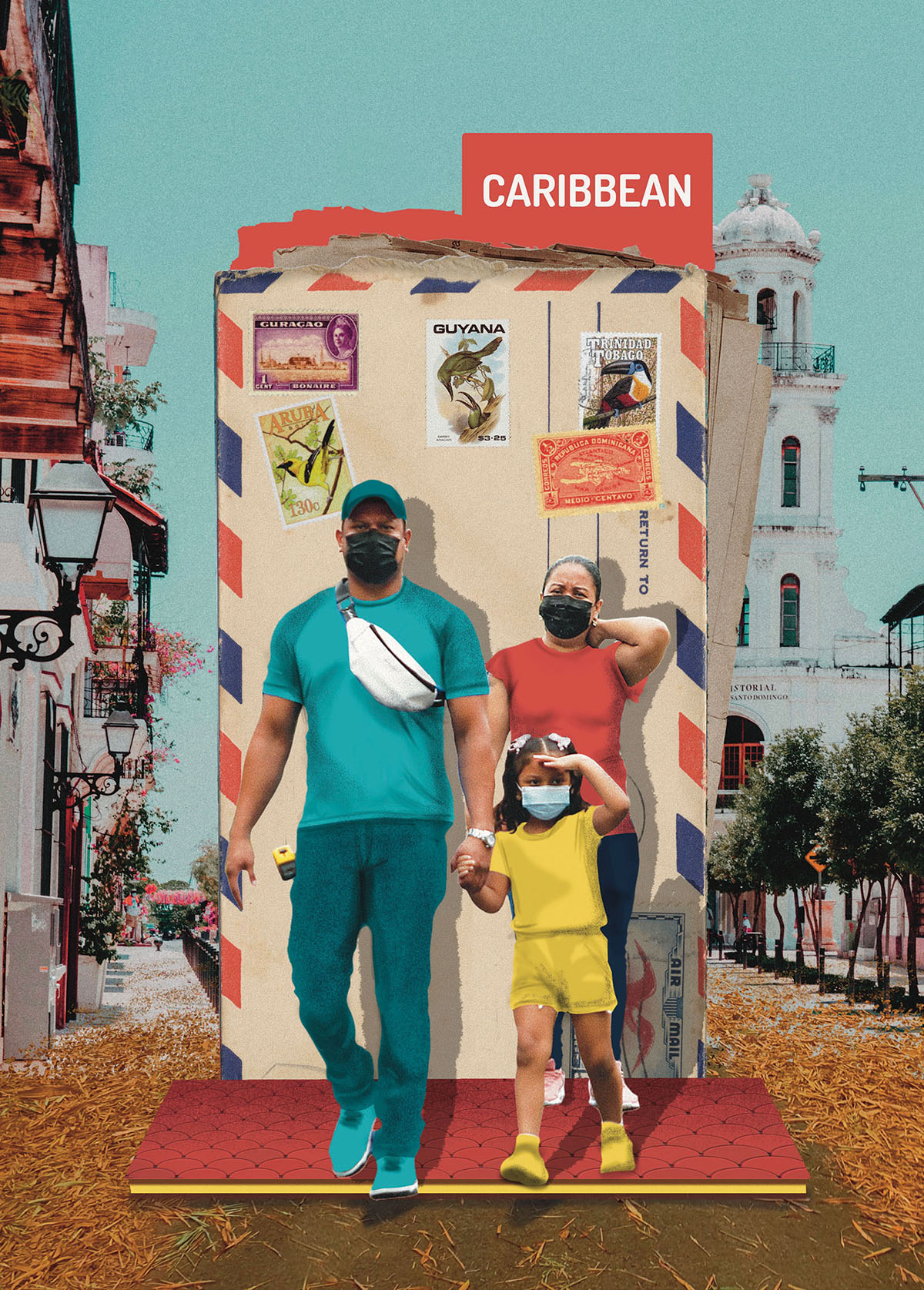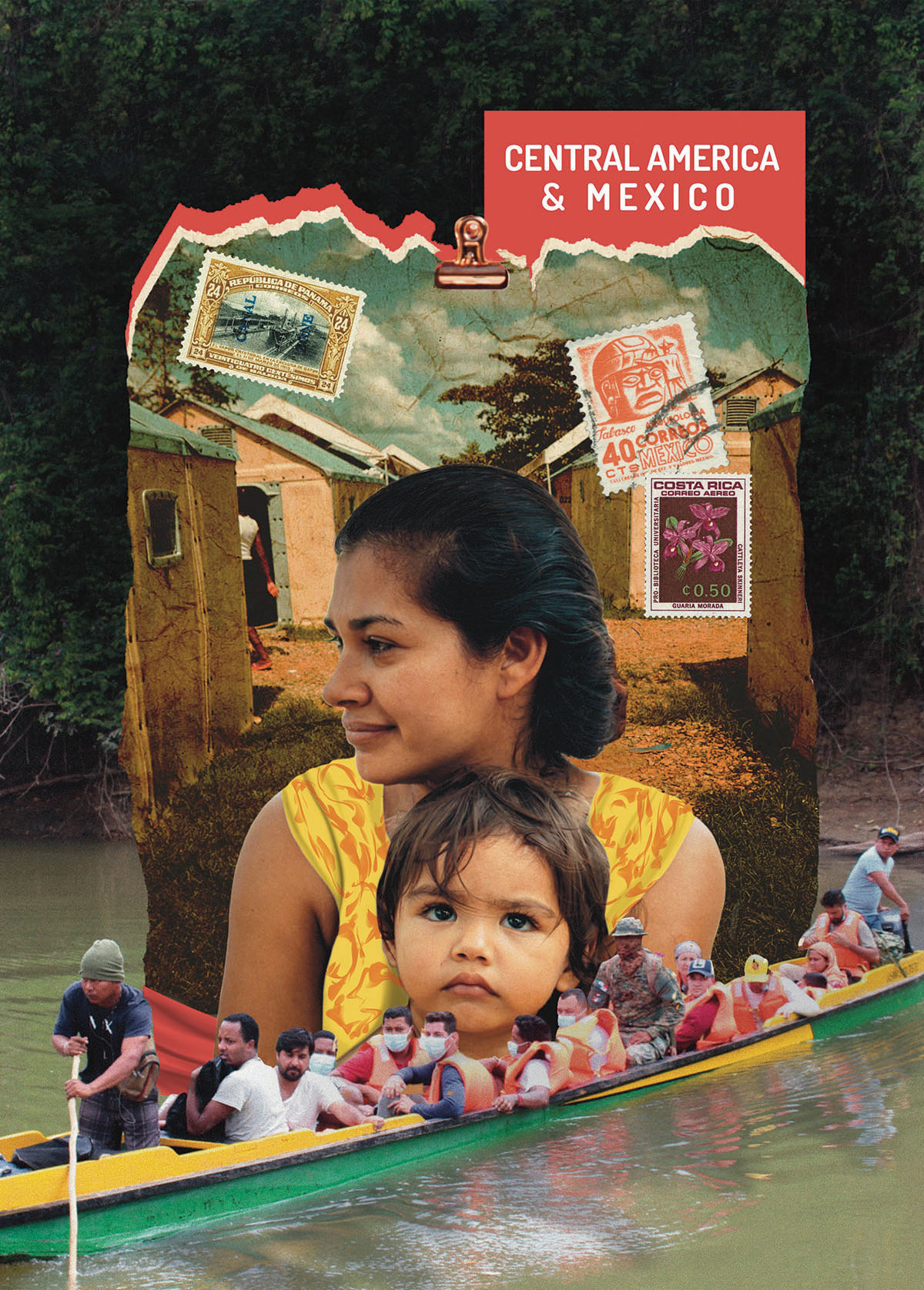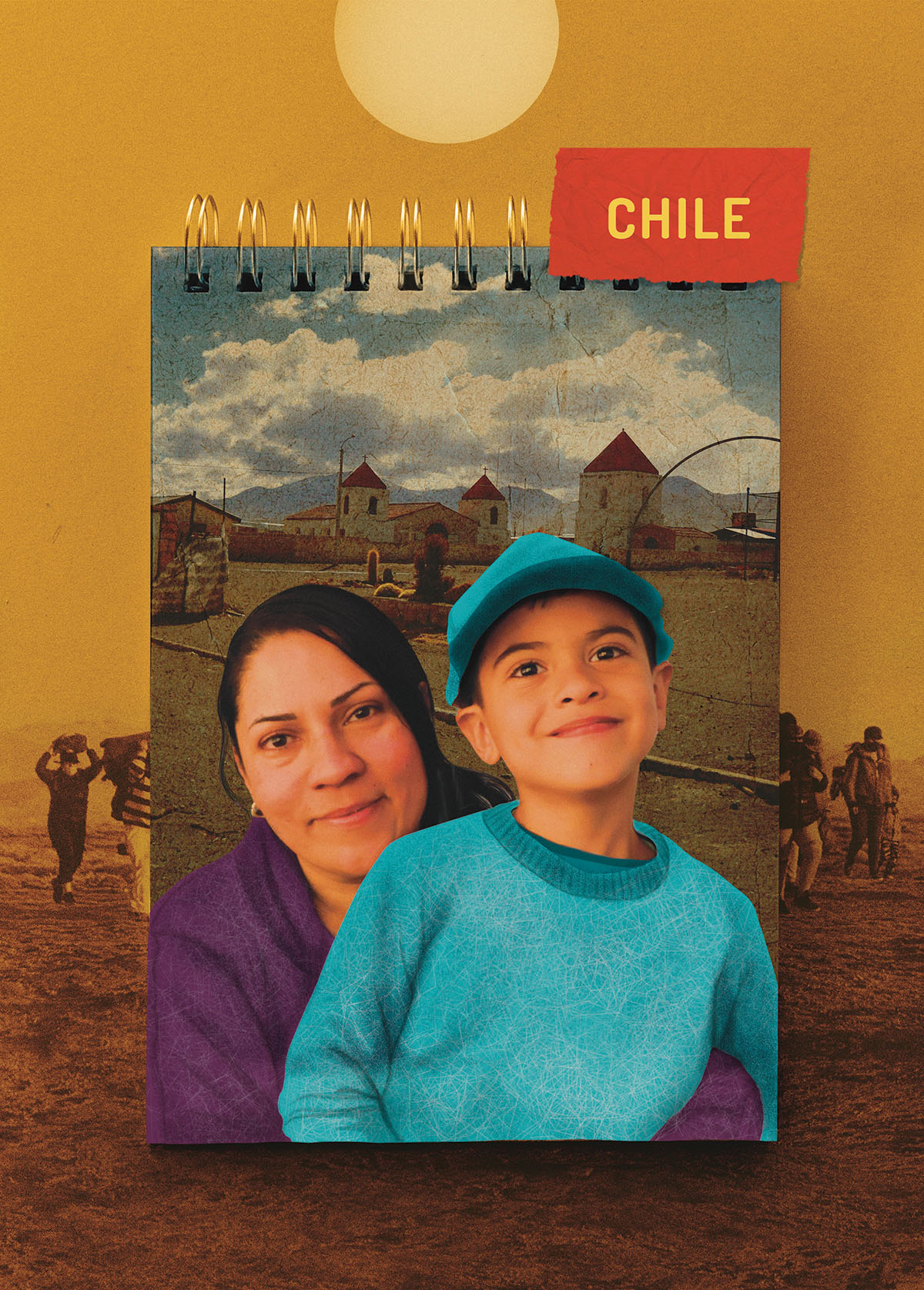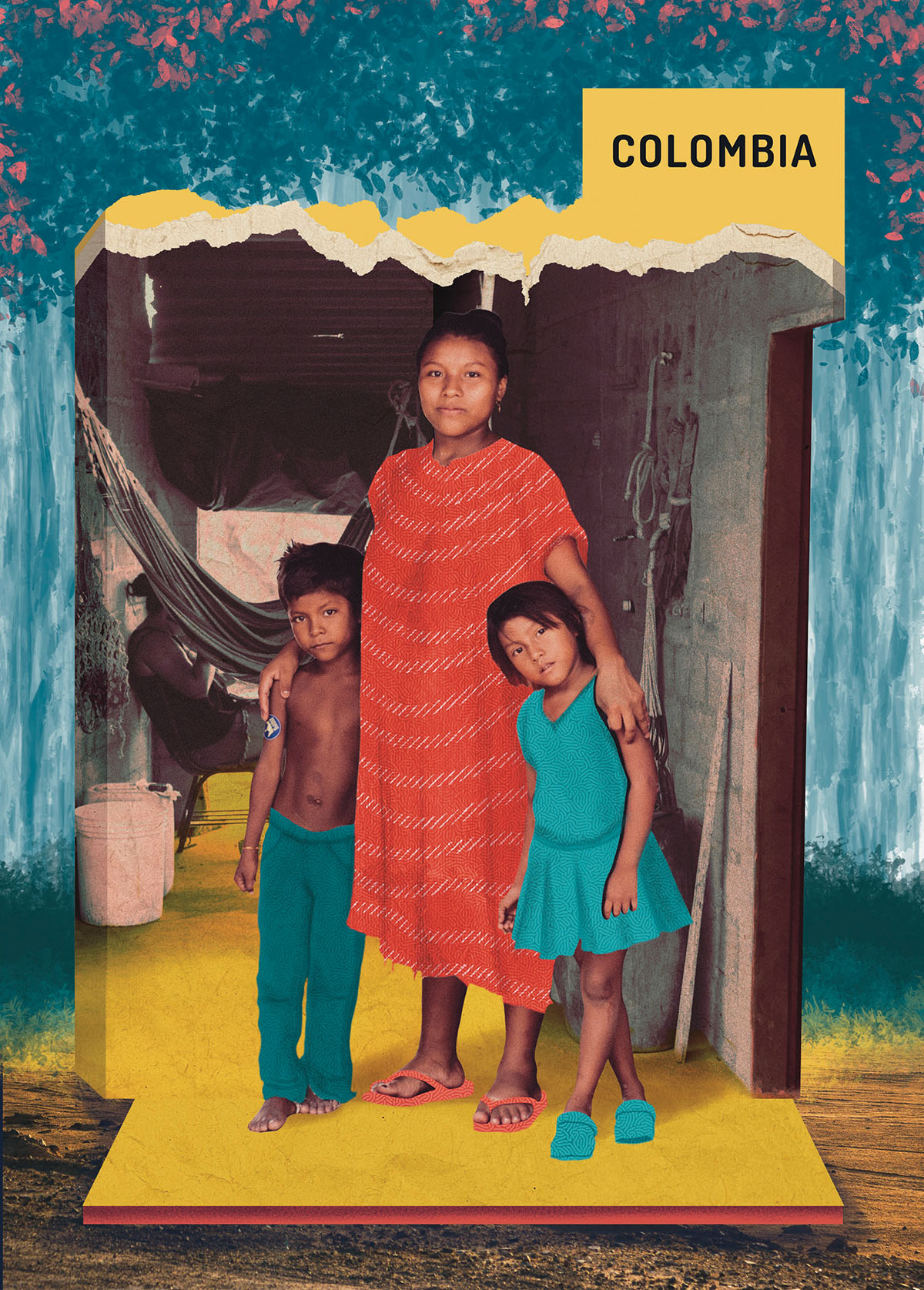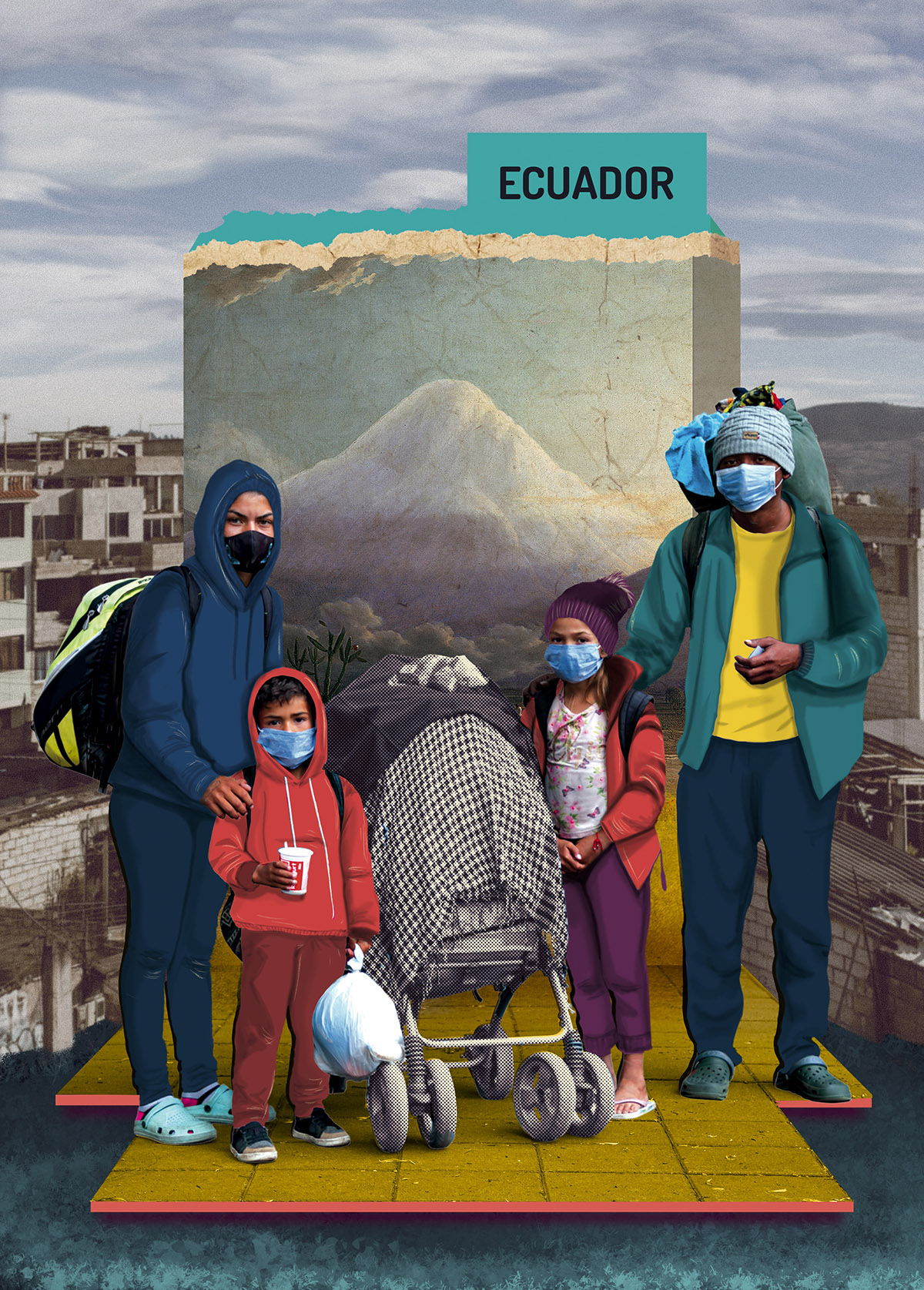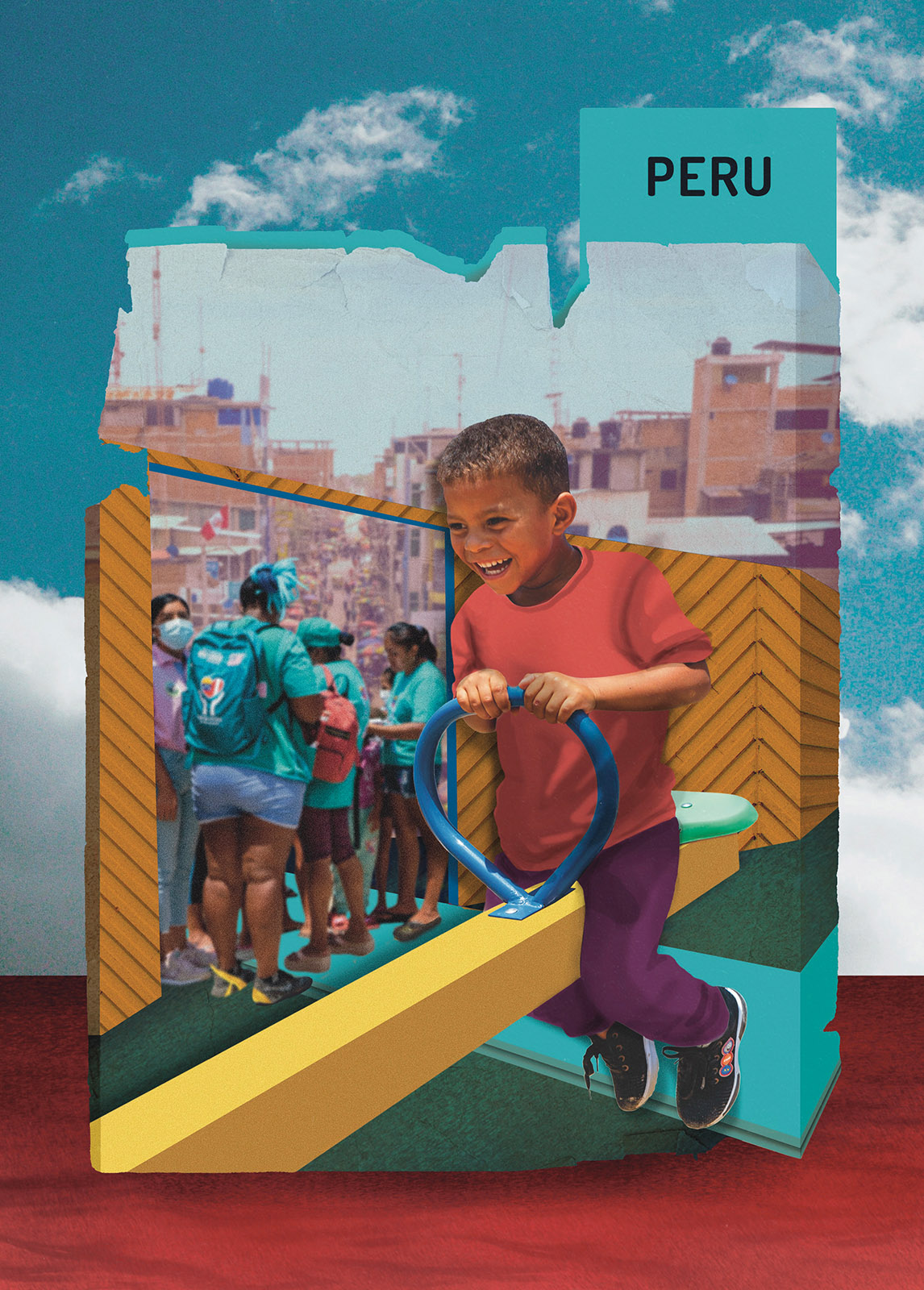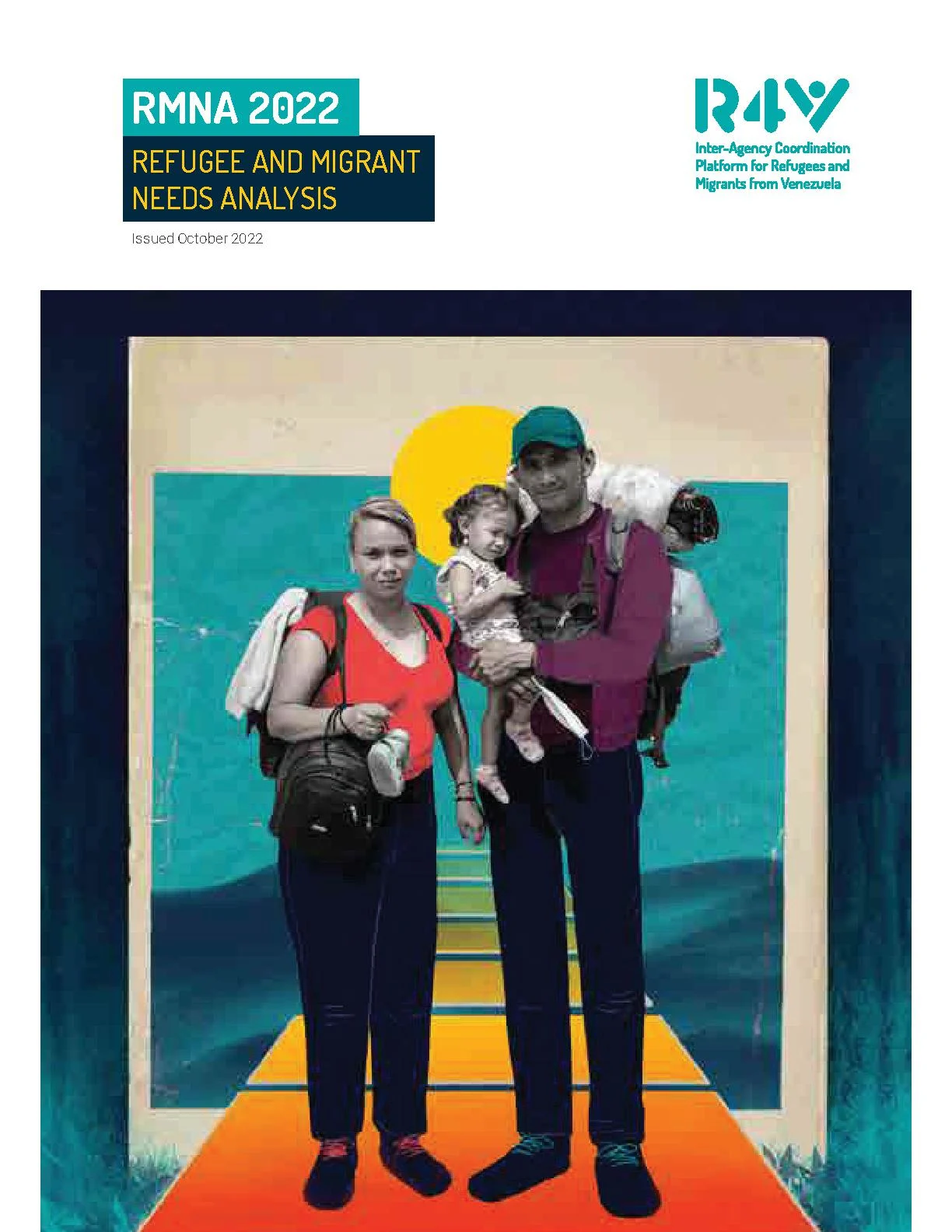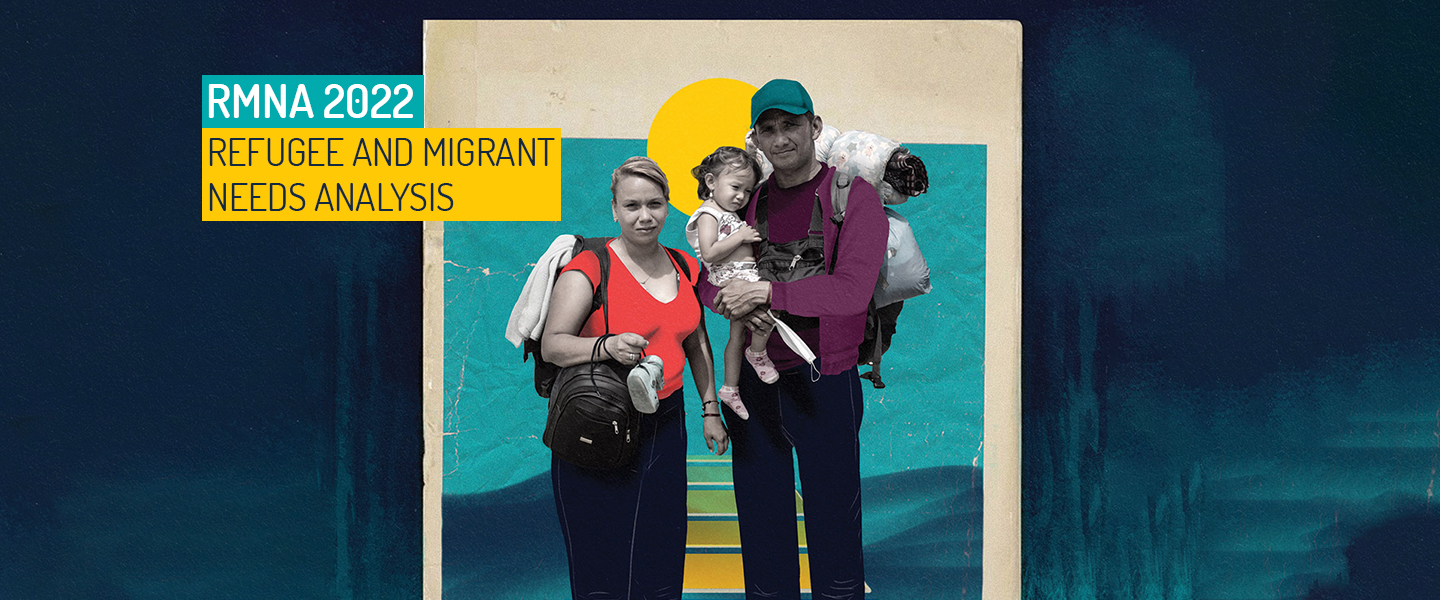
Since 2018, the R4V Platform has issued annual Regional Refugee and Migrant Response Plans (RMRP). Highlighting the needs of vulnerable population groups as well as the response strategies of the various Platform and sector groups, including a complete review following the onset of the COVID-19 pandemic in March 2020. Building on valuable feedback from stakeholders, during the planning process in 2022, the R4V Platform decided to separate the RMRP into two documents: (i) the Refugee and Migrant Needs Analysis (RMNA), which highlights the needs of refugees and migrants from Venezuela, while (ii) the RMRP will highlight the response strategy. The RMNA includes multistakeholder and sectoral analyses by Platforms and Sectors at all levels of the response (regional, national, and sub-regional), with the majority of Platforms undertaking Joint Needs Analysis (JNA) exercises. These include, at minimum, a JNA Workshop and a secondary data review with R4V partners and host country governments, as well as primary data collection exercises, focus group discussions and/or key informant interviews, based on the information needs and dynamics of each Platform.
“As the world faces numerous humanitarian crises, refugees and migrants from Venezuela and their host communities must not be forgotten.”
Evolution of the figures in the R4V 17 countries
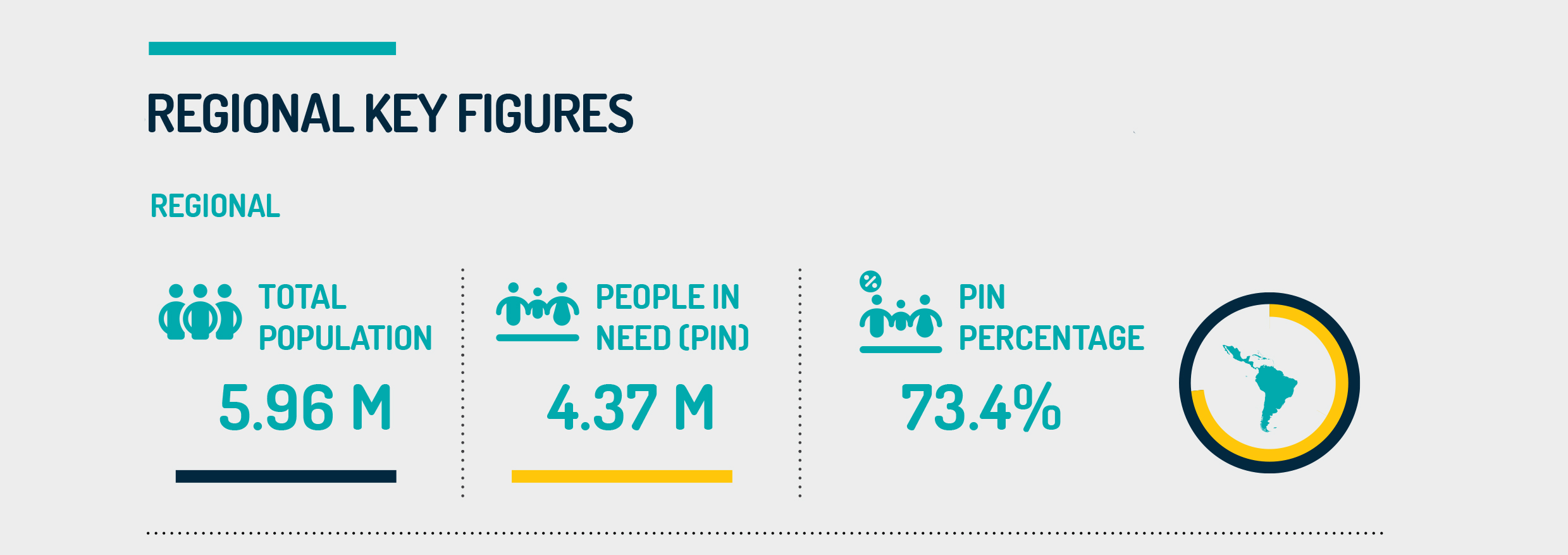
General Situation
©DRC/Lea Dam – Colombia
Years after the beginning of the Venezuelan emergency, out of the more than 5,96 million refugees and migrants from Venezuela that are hosted by 17 countries of Latin America and the Caribbean, some 4,37 million still face difficulties in accessing food, housing and stable employment.
The spiralling costs of living, the continuing impact of the COVID-19 emergency and high unemployment rates increased the vulnerability of Venezuelan refugees and migrants and have made it difficult for many to rebuild their lives and integrate into host societies across Latin American and the Caribbean.
Every second refugee and migrant in the region cannot afford three meals a day and lack access to safe and dignified housing. In order to access food or avoid living on the streets, many resort to survival sex, begging or indebtedness. High unemployment rates and extremely low salaries (compared to those of host communities) have contributed to this deteriorating and unsustainable situation, resulting in their inability to support themselves and their families.
“Venezuelans are eager to share their skills and knowledge and contribute to the communities that have generously welcomed them. Many have already been doing so. However, they won’t be able to continue if they are not given an opportunity to integrate effectively.”
Transitory movements
©IOM/Magda de Gracia – Panama
Among the Venezuelans who have not benefitted from the notable regularization initiatives and who lack documentation many have been resorting to onward movements to new host countries, hoping for a safe and sustainable future. To get there, they often put their lives at risk by taking extremely dangerous irregular routes, such as through Darién jungle, between Colombia and Panama. Over 68.000 Venezuelans have crossed the Darien between January and August 2022, a rate 2,400% higher than in the whole of 2021. Alarmingly, of the refugees and migrants from Venezuela interviewed at reception stations in Panama, all claim to have seen, heard or been victims of sexual assault while walking through the jungle.
Host countries have shown continued leadership in responding to the crisis through establishing regularization initiatives and facilitating access to health, education and other social services. However, their capacities are stretched to a breaking point, and they require urgent international support.
pressing needs
©UNICEF/Alécio Cezar – Brazil
The ability of refugees and migrants to meet basic needs have decreased due to widespread unemployment and rising costs-of-living, disproportionally impacting already vulnerable groups, such as women and Venezuelans in irregular situations. Against this background, a deteriorating trend in food security among Venezuelans has been noted in various countries across the region, consequently representing the top identified need of most refugees and migrants. As a result, coupled with inadequate access to health services and poor WASH conditions, nutritional needs have increased especially among young children and pregnant and lactating women. Lack of economic resources equally constitutes a barrier to access adequate shelter and housing, which has emerged as one of the highest prioritized needs in many countries where refugees and migrants are facing challenges securing payment of rent, leading to risks of eviction and homelessness.
The continuing trend of irregular movements of refugees and migrants, often associated with journeys through harsh terrain and difficult conditions, implies serious risks for in-transit populations, including gender-based violence, human trafficking and smuggling. With increasing number of countries having introduced visa requirements for Venezuelan nationals, more refugees and migrants resort to dangerous crossings and routes.
Despite the various important regularization and documentation initiatives ongoing across the region, needs related to protection and integration remain central. In addition, overall rising levels of xenophobia and discrimination continue to pose barriers to refugees’ and migrants’ access to rights and services, influencing overall social cohesion in host communities.
The rmna
©VenEsperanza/Aica Colectivo – Colombia
Needs analysis are a key component of humanitarian programming cycles and foster evidence-based planning and inform response actors, host authorities, donors, and the general public on the key needs that the population groups under the RMRP face. In the case of the Regional Venezuela Response, those needs are evaluated for every population group, in each Platform across all response sectors, reflective of the varying situations that refugees and migrants, in-destination and in-transit, as well as affected host communities encounter.
To ensure that the RMNA 2022 was conducted based on a joint, inter-sectoral and inclusive approach, R4V actors (including UN agencies, INGOs, NNGOs, civil society, academia and faith-based organizations) engaged in the different sectors and working groups, at national and regional level, engaged in Joint Needs Analysis (JNA), focus group discussions (FGD) and secondary data reviews (SDR), providing their individual expertise and utilizing their outreach networks. This resulted in a comprehensive and holistic understanding of cross-sectorial relations between needs and their causes as well as an inclusive compilation of needs that will serve to inform a tailored and targeted response planning, as part of the RMRP 2023-2024.
What is happening with refugees and migrants from Venezuela?
Type and number of data sources used by National/Sub-regional Platforms to calculate People in-Need (PiN)
